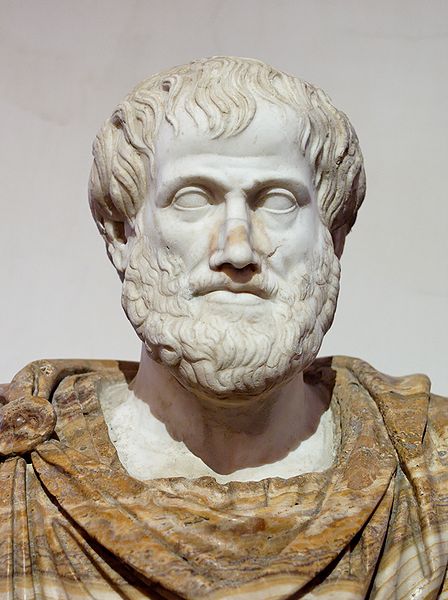About two or three years ago I started watching the American TV show, The West Wing. To my surprise I thoroughly enjoyed it, possibly because it bears the same relationship to real political ethics as Charlie and the Chocolate Factory does to the confectionary industry.* In one episode, during the fourth season of the show, one of the characters mentions an Aristotelian principle related to narrative. He says, in this quote pulled cavalierly off the Netosphere:

West Wing Cast
West Wing
CUT TO: INT. TOBY’S OFFICE – NIGHT
SAM He said… what he said was this– he said, “A probable impossibility is preferable to an improbable possibility.” The impossible is preferable to the improbable. What did he mean? He meant that it’s okay to have a broomstick sing and dance, but you shouldn’t turn on the radio and hear the news report you need to hear.
[etc…]
And this represents, reasonably accurately, what Aristotle was going for. In his Poetics he describes a number of qualities useful, if not crucial, to the art of drama. One of these is the idea of probability:
In general, the impossible must be justified by reference to artistic requirements, or to the higher reality, or to received opinion. With respect to the requirements of art, a probable impossibility is to be preferred to a thing improbable and yet possible. Again, it may be impossible that there should be men such as Zeuxis painted. ‘Yes,’ we say, ‘but the impossible is the higher thing; for the ideal type must surpass the reality.’
The key phrase in understanding the concept, I think, is ‘the requirements of
art’. If we were looking at the requirements of ‘science’ I think the improbable would be hugely preferred to the impossible. However, Aristotle believed that art’s purpose was to represent a reality ‘higher’, ‘greater’, or perhaps just more harmonious, than our own. His example, Zeuxis, painted highly idealised portraits. For Aristotle this was ok, because it represented reality in a way that was ‘higher’, or more perfect. Aristotle justified this by reference to the ‘action’ of the drama, where each action must bear a relationship of plausibility with objective reality and with the previous events within the drama. It becomes more acceptable to a drama’s audience, he says, to introduce impossibility, such as a god, rather than an improbability, such as a coincidental meeting between long lost twins**.
I heard a conversation recently about the new Star Trek movie that talked along the same lines. They mentioned the phenomenon of ‘Warp Drives’, which are impossible. But because they are written into the base assumption of the fictional universe, i.e. ‘they are possible here’; they are accepted without need for further explanation.
The question of what we are, and are not, willing to accept from fiction makes for interesting theory. Aristotle, being the man he was, believed that there are rules for how we accept in drama, and in fiction in general. Interestingly these rules still seem to hold true, which suggests there is something fundamental to our engagement with story. Too often these ideas are misused, however. I have had people tell me to ‘just suspend [my] disbelief’ in the face of overwhelming and repeated improbabilities. But suspension of disbelief isn’t the right idea, and it has become a weasel word for poor writing. If a thing is well written, I shouldn’t have to force myself to accept the unacceptable, and neither should you.
~Chris
*Actually, that’s a bit harsh. The show is meant to be reasonably accurate as far as ‘processes’ go.
** My examples, not Aristotles.

Leave a comment